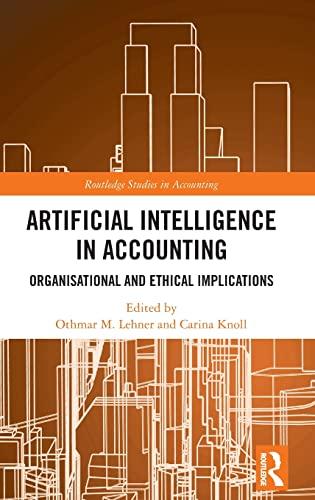Question
Your client a pastor has not filed tax returns for the following years. He is married. Their combined income is as follows: Wife Salary Pastor
Your client a pastor has not filed tax returns for the following years. He is married. Their combined income is as follows:
Wife Salary Pastor Salary Parsonage Allowance
2013 18000 23500 9500
2014 18500 22,000 8,500
2015 20,000 24,000 8700
2016 25,000 26,000 9,500
2017 26,000 30,000 12,000
2018 32,000 35,000 18,000
2019 35,000 38,500 24,000
Pastor built his own home in 2015 and there was no mortgage on the house. The wife works as a teacher in HISD and the income tax withheld from her was 15% of salary. Income tax withheld from Pastors salary was 20 % of his salary.
Given Data:
She was 15% of salary and Pastor's salary was 20% of his salary
Total Income of pastor wife during all years-
2013 to 2019 = 18,000+18,500+20,000+25,000+26,000+32,000+35,000= 174,500
Salary of Pastor -
23,500+22,000+24,000+26,000+30,000+35,000+38,500=199,000
Personal allowance -
9,500+8,500+8,700+9,500+12,000+18,000+24,000=252,200
Total Salary + Personal Allowance-
199,000+252,200=451,200
Total Tax of Pastor-
451,200*20%=90,240
Note: Pastor wife can't liable to pay tax. Because her income less than basic expectation and also her income not club in pastor income; he was personal skills.
Help for Pastor Assignment
Search IRS.Gov-Publication 517
- Read Exemption from Social Security
- Self-Employment Tax
- Parsonage Allowance
- For your assignment-You can estimate expenses for parsonage allowance.
- Google-clergy housing allowance-use the court case for your discussion.
- When you are doing tax return, follow these steps
PLEASE MAKE SURE TO ATTACH ANALYSIS -IRS PUBLICATION, IRS CODE SECTION, COURT CASE, AND YOUR ANALYSIS
Seventh Circuit: Clergy Housing Allowance Is Constitutional
Appellate court reverses lower court ruling, preserving valuable tax ben section 107(2) allows qualifying ministers who rent or own their own homes to receive an annual housing allowance from their employing churchand not pay federal income taxes on the designated amounts. The provision was adopted by Congress in 1954, after clergy from a variety of faith traditions indicated there was unequal tax treatment for those who were not provided a parsonage from their employing house of worship. Since 1921, clergy who live in parsonages receive federal income tax exemptions for housing-related expenses through Section 107(1) of the Tax Code.
Read these two code sections
Section 107
Step by Step Solution
There are 3 Steps involved in it
Step: 1

Get Instant Access to Expert-Tailored Solutions
See step-by-step solutions with expert insights and AI powered tools for academic success
Step: 2

Step: 3

Ace Your Homework with AI
Get the answers you need in no time with our AI-driven, step-by-step assistance
Get Started


